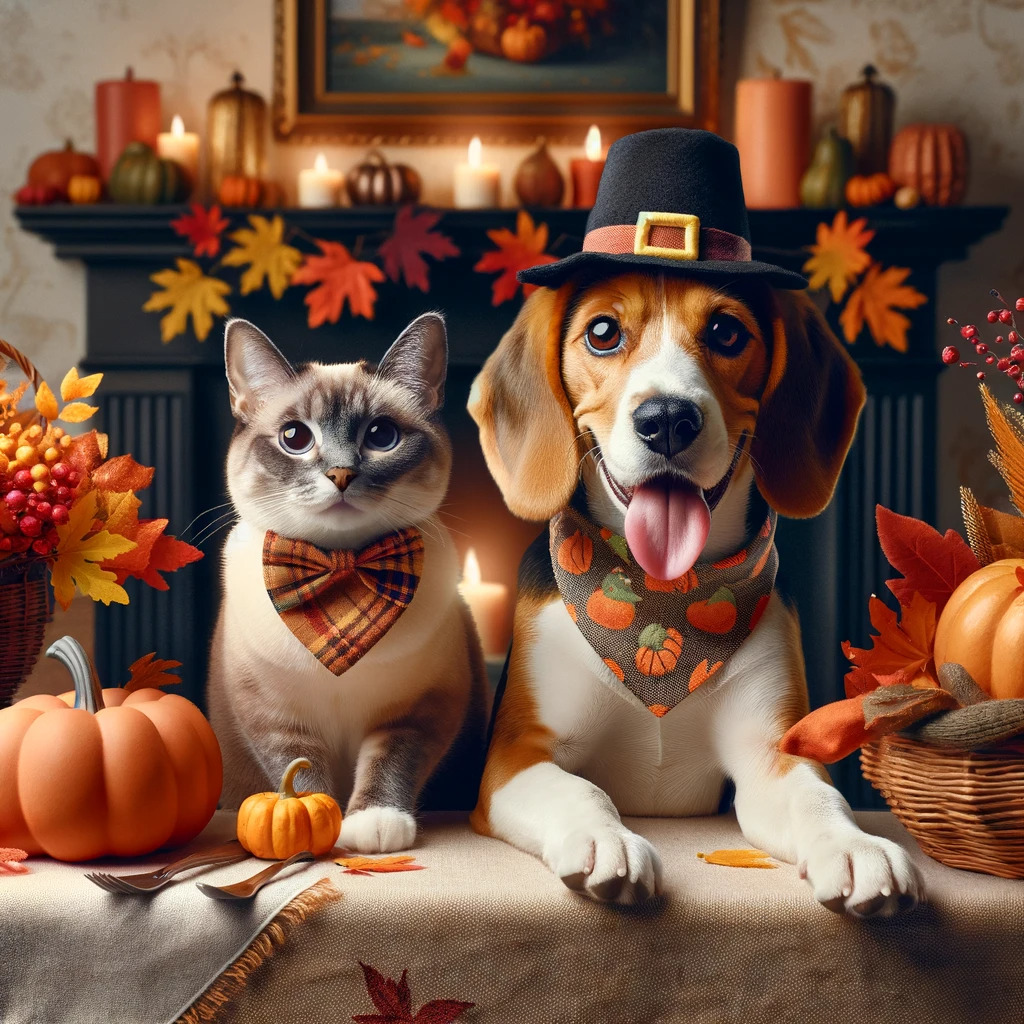Why Turkey and Thanksgiving Leftovers are a No-No for Your Pets: A Comprehensive Guide
Thanksgiving is a time of joy and gratitude, and as pet owners, it’s natural to want to include our furry companions in the festivities. However, while sharing your Thanksgiving feast might seem like a loving gesture, it can pose significant health risks to your cats and dogs. This comprehensive guide delves into why turkey and Thanksgiving leftovers should not be part of your pet’s Diet.
Understanding Pet Nutrition: The Basics Before exploring the specifics of Thanksgiving foods, it’s crucial to understand the basics of pet nutrition. Cats and dogs have different dietary needs compared to humans. Their bodies process foods differently, and what is harmless to us can be toxic to them. A balanced diet for pets typically includes a specific ratio of protein, fats, carbohydrates, vitamins, and minerals, carefully calibrated to their species, age, and health status.
The Hidden Dangers in Thanksgiving Foods:
- Turkey Bones and Skin:
- Choking Hazard and Digestive Blockages: Turkey bones are brittle, especially when cooked. They can easily splinter and cause choking or obstruct the digestive tract. Blockages can be life-threatening and may require surgical intervention.
- High Fat Content: The skin of the turkey, while delicious to us, is laden with fats that can be difficult for pets to digest. This can lead to pancreatitis, a condition where the pancreas becomes inflamed and disrupts the digestive process, leading to pain, vomiting, and dehydration.
- Onions, Garlic, and Spices:
- Toxicity: Onions and garlic contain thiosulfate, which is toxic to cats and dogs. It can lead to oxidative damage in red blood cells, causing hemolytic anemia. Symptoms may not appear immediately and can include lethargy, weakness, and orange to dark red urine.
- Spices: Many spices used in Thanksgiving cooking are not suited for pets. For instance, nutmeg, often used in pumpkin pie, can cause seizures and central nervous system problems in pets.
- Rich and Fatty Foods:
- Gastrointestinal Upset: Foods high in fat, such as gravy, buttery side dishes, and stuffing, can cause severe gastrointestinal upset in pets. Symptoms can include vomiting, diarrhea, and loss of appetite.
- Long-term Health Issues: Regular consumption of fatty foods can lead to obesity in pets, which is associated with a host of health problems, including Diabetes, joint disease, and decreased life expectancy.
- Sweets and Baked Goods:
- Xylitol Poisoning: Xylitol, a common sweetener in baked goods and candy, can cause insulin release in most animals, leading to liver failure. Early symptoms include vomiting, lethargy, and loss of coordination.
- Chocolate Toxicity: Chocolate contains theobromine and caffeine, which are toxic to dogs and cats. Dark chocolate and baking chocolate are particularly dangerous. Symptoms of chocolate poisoning include vomiting, diarrhea, rapid breathing, increased heart rate, and seizures.
The Right Way to Treat Your Pets:
- Stick to Their Regular Diet: Consistency is key in pet nutrition. Sudden changes in diet can cause digestive upset. It’s best to keep your pets on their regular diet, even during holidays.
- Safe Alternatives: If you want to treat your pet, consider small amounts of plain, cooked turkey meat without skin or bones. Ensure it’s free from garlic, onions, and heavy spices. Other safe options include plain pumpkin (not the pie filling), apple slices (without seeds), or carrots.
- Avoid Table Scraps: Feeding pets from the table can encourage bad behavior and expose them to harmful foods. It’s best to keep pets away from the dining area during meals.
Additional Considerations:
- Alcohol and Pets: Never give pets alcohol. It can cause intoxication, comas, and even death.
- Dairy Products: Many pets are lactose intolerant. Dairy can cause digestive upset and diarrhea.
- Grapes and Raisins: These are toxic to dogs and can cause kidney failure.
Conclusion: Thanksgiving is a time for giving thanks for our blessings, including the companionship of our beloved pets. By understanding the risks associated with feeding them turkey and Thanksgiving leftovers, we can ensure they remain healthy and safe. Remember, the best way to show love to your pets is by keeping them healthy and respecting their dietary needs.
Marianne Bailey is the passionate owner and founder of TheHIPSenior.com, a dynamic online platform dedicated to empowering, engaging, and connecting seniors with resources and information to help them live their best lives. As a natural extension of her commitment to supporting the senior community, Marianne is also the energetic host of The HIP Senior Podcast, where she sparks insightful conversations with fascinating guests from various fields, sharing their wisdom and experiences with her listeners.
Marianne's dedication to redefining the senior experience has garnered her a loyal following and made her a respected voice in the senior community. She continues to champion the idea that age is just a number, and that life after retirement can be filled with adventure, new challenges, and endless opportunities for personal growth.
